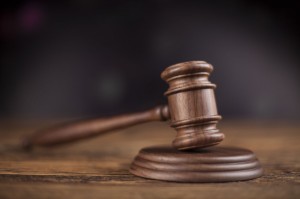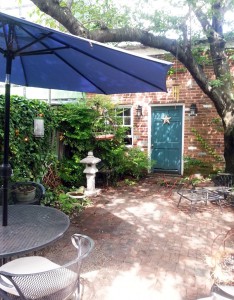Rules Are for Schmucks: The Sad Spectacle of Courts Defining Religion

In case you missed it, or (better yet) forgot about it, there was a navel-staring dustup last fall over the “responsibility” of religion journalists to define the term “religion.” A New York Times article compared the CrossFit exercise community to a religion, incurring the wrath of a writer for The Week, who moaned and groaned about how little the Times writer knew about the definition of “religion.” Then a Religion Dispatches writer weighed in, carefully toting up the pros and cons of each position, with the salutary effect of lulling me gently to sleep.
What rudely jolts me back to attention is when I read about courts engaged in exactly the same debate, with real rights and real money (i.e., mine) affected by whatever answer they pull from the sky. Should they be doing this?
An article in The Atlantic last week cuts straight to the point: “Should Courts Get to Define Religion?” It focuses on an upcoming case before the Massachusetts Supreme Judicial Court, dealing with the tax-exempt status of a 199-acre plot in the City of Attleboro called the Shrine of Our Lady of LaSalette. The entire site, with an assessed value of $12.8 million, has enjoyed complete exemption from property taxes since it was first established in 1953. Throughout that sixty-three year period, it has enjoyed the full range of police, fire, animal control, transportation, and other services provided by the City of Attleboro, paid for courtesy of Attleboro’s religious and nonreligious taxpayers alike.
Upon further review, though, the city determined that a large portion of the property was not used for “religious worship or instruction” at all. The coffee shop, for example—not too religious. The bookstore. The maintenance shed. The forest that covers over half the site. So the city sent them a property tax bill for the $4.9 million portion of the property not used for religious purposes, and used instead for things like farmers markets, carnivals, yard sales, and clambakes.
Catholic, Protestant, Jewish, and Muslim God salesmen don’t agree on much, but all of them are aghast that this little town had the sheer gall to suggest that the shrine pay taxes on its nonreligious property. “The notion that local assessors or any government actor is equipped or would presume to deem whether one use of a religious organization’s property or another falls within the definition of ‘religious worship’ is antithetical to religious freedom,” they shriek.
That’s the point of the Atlantic puff piece as well, penned by an author whose claim to fame is a book about the pope’s tweets. He insists that “believers have to be able to decide for themselves what constitutes their faith; that’s the only way to implement the existing law fairly.”
So religious property owners, rather than the government, should have the sole right to decide what portion of their property is tax exempt. Brilliant! Boston’s Cardinal O’Malley, taking a few moments off from his mission of concealing clerical sex abusers, explains that the shrine’s grounds offer “communion with nature,” which “is a core religious activity with ancient roots in Christianity’s past.”

The author’s backyard
Let me tell you about my backyard. It’s not very big, and it’s largely bricked over, but when I put seed in the bird feeder I get lots of sparrows, cardinals, doves, and an occasional finch. When it rains, I get wet. This is my “communion with nature,” and I can’t tell you how anxious I am to have it exempted from property taxation. By the theory of the scholarly Massachusetts brief and the Atlantic author, no nasty “government actor” has any right to tell me I’m wrong.
A few days earlier, another court in Nebraska ruled that the Church of the Flying Spaghetti Monster, sometimes called the Pastafarians, does not fall within the definition of a “religion.” This conclusion runs directly against that of several other jurisdictions, including the Netherlands, New Zealand, the United Kingdom, and Austria. For some reason, the Nebraska judge decided that Pastafarianism was a parody of religion, but not an actual religion itself. The Pastafarian website has a telling rejoinder: “Elements of our religion are sometimes described as satire and there are many members who do not literally believe our scripture, but this isn’t unusual in religion. A lot of Christians don’t believe the Bible is literally true—but that doesn’t mean they aren’t True Christians.”
The Pastafarian case did not involve property tax exemption, but a prisoner, who unsuccessfully sought the rights to wear religious clothing, to meet for weekly worship services, and to receive communion (in the form of spaghetti and meatballs). Interestingly, just last fall another prisoner won these rights for his religion called the “Creativity Movement”—a religion whose website proclaims its faith in the “Survival, Advancement and Expansion of White Race.” The most decisive of its “Five Fundamental Beliefs” is “We believe that what is good for the White Race is the highest virtue, and what is bad for the White Race is the ultimate sin.”
So our courts now officially recognize white supremacists as having a valid religion, but not peaceful folks who celebrate reason and having a good time. And Donald Trump isn’t even president yet.
The whole idea of courts picking and choosing which kinds of beliefs and activities get special religious legal privileges and which kind don’t is revolting. And moronic. And in most cases, especially these, so easily avoidable:
- Everybody should pay property taxes on whatever property they own.
- Everybody should bare their heads for driver’s license photos, wearing neither a hijab nor a colander.
- Everybody in prison should follow the same prison rules.
There. Is that so hard?
